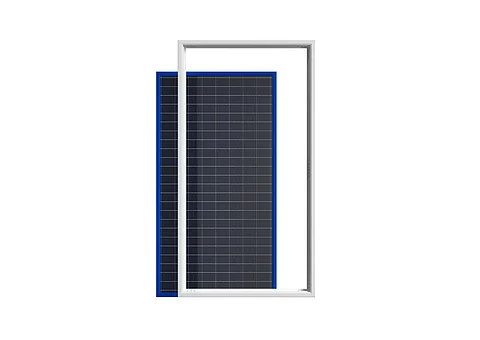

Thornova Solar's latest PV module features a polyurethane-based composite frame
This module outperforms its traditional aluminum frame-based counterpart in terms of mechanical strength and longevity
The incorporation of low-carbon material, such as a composite frame, makes it an environmentally friendly product
By strategically optimizing the bill of materials (BOM) – including the glass, frame, encapsulants, and other components – PV module manufacturers can more effectively tailor their products to meet the specific demands of various applications.
Thornova Solar, a California-based PV module manufacturer, recently introduced a composite frame-based PV module designed for coastal areas and regions prone to extreme weather events. This environmentally sustainable product features a polyurethane-based frame and other advanced BOM elements, offering enhanced mechanical strength and long-term durability.
Compared to conventional aluminum-frame modules, this new module, reinforced with fiberglass and a composite frame, is said to achieve superior mechanical performance, boasting wind-load and snow-load capacities of up to 3,000 Pa and 7,000 Pa, respectively. Its composite frame and anti-UV coating-based BOM materials also increase resistance to corrosion and chemical degradation, making it particularly suitable for harsh environments, including offshore and high-salinity regions.
Unlike traditional PV modules that rely on aluminum frames and tempered glass, Thornova's polyurethane-based composite frame significantly reduces the risk of potential-induced degradation (PID). And thanks to the composite frame’s inherent insulating properties, the module can be installed without the need for grounding, simplifying the installation process and potentially reducing costs.
From a sustainability perspective, Thornova reports that its composite frames emit up to 80% less carbon during production compared to traditional aluminum frames. This innovation contributes to the broader global transition toward sustainable energy solutions.
Andrea Bodenhagen, Global Branding Director at Thornova Solar, stated: “Our new composite frame modules represent a major leap forward in solar technology.” He added, “By combining mechanical strength, long-term reliability, and environmental sustainability, we are providing a next-generation solution for EPCs, developers, and investors looking to build resilient, high-performance solar projects.”
As for commercial availability, the company notes that the sleek black-finish composite frame module is now available, while other color options can be provided upon customer request.
